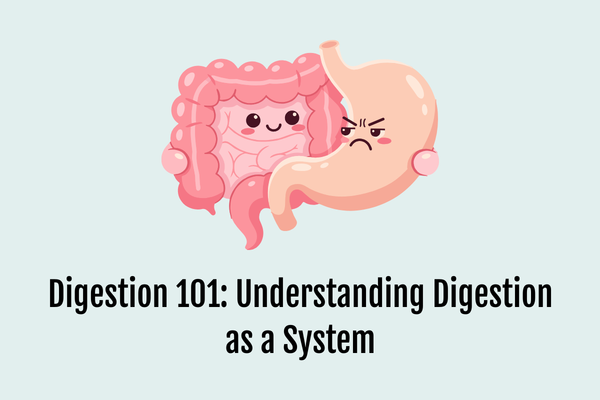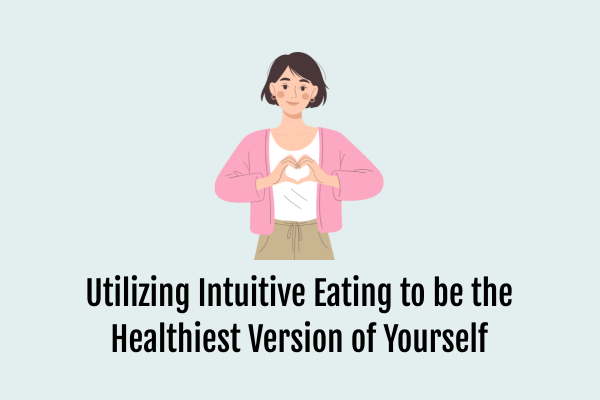Immunity and Nutrition: Expert Tips from a Dietitian for Stronger Health
Written by: Sophia Schweiger
Reviewed by: Devon Epitropoulos (Kroesche), MS, RDN, LDN
When it comes to staying healthy, our immune system plays a critical role in defending our body from infections, viruses, and other harmful invaders. But did you know that nutrition can have a profound effect on immune health? This blog post will explore expert tips from a dietitian on how you can use nutrition to boost your immunity and stay healthy year-round.
Whether you're trying to boost your immunity during cold and flu season or maintain a strong defense throughout the year, personalized nutrition, meal planning, and healthy eating habits are essential. By prioritizing immune-boosting foods and proper nutrition, you can support your body in fighting off illness naturally.
Let’s dive in and explore how you can enhance your immune function with the right foods and habits!
The Link Between Nutrition and Immunity
Before we dive into meal planning and specific food recommendations, it’s essential to understand how nutrition impacts the immune system. Our immune system relies on a variety of nutrients to function at its best, including vitamins, minerals, antioxidants, and macronutrients (proteins, fats, and carbohydrates). A well-balanced diet provides these essential nutrients, ensuring your immune cells can do their job effectively.
When we fail to nourish our bodies with these essential nutrients, our immune system can become weak, making it less efficient. Poor nutrition can lead to deficiencies that leave the body more vulnerable to infections and illnesses.
Nutrients That Boost Immunity: What to Include in Your Diet
Certain key nutrients can help boost immunity. Let’s take a look at the most important nutrients recommended by a dietitian and where to find them:
Vitamin C
Vitamin C is one of the most well-known immune-boosting nutrients. It plays a crucial role in supporting various immune functions, including protecting against infection. It also acts as a powerful antioxidant, helping to reduce inflammation and protect cells from oxidative stress. The recommended daily allowance (RDA) of vitamin C is 90 mg/day for men and 75 mg/day for women.
Top Sources of Vitamin C:
- Citrus fruits (oranges, grapefruits, lemons)
- Bell peppers
- Kiwi
- Strawberries
- Broccoli
- Brussels sprouts
Vitamin D
Vitamin D is essential for a healthy immune system. It helps regulate immune cell function and enhances the pathogen-fighting effects of immune cells. Many people experience low levels of vitamin D, especially during the winter months, which can lead to increased susceptibility to illnesses. The RDA for vitamin D is 1000 IU or 25mcg.
Top Sources of Vitamin D:
- Fatty fish (salmon, mackerel, sardines)
- Fortified dairy and plant-based milk
- Eggs
- Mushrooms (especially when exposed to sunlight)
Zinc
Zinc is another essential nutrient that helps support immune function. It aids in the production and activation of T-cells, which are crucial for immune response. Zinc also has antiviral properties and can shorten the duration of illnesses like the common cold. The RDA is 8 mg/day for women and 11 mg/day for men.
Top Sources of Zinc:
- Shellfish (oysters, crab, lobster)
- Red meat and poultry
- Legumes (beans, lentils, chickpeas)
- Seeds (pumpkin seeds, sesame seeds)
- Nuts (cashews, almonds)
Probiotics
Did you know that your gut health plays a significant role in immune function? A healthy gut is home to a large portion of your immune system. Probiotics are beneficial bacteria that support gut health and, in turn, contribute to stronger immunity.
Top Sources of Probiotics:
- Yogurt (look for “live and active cultures”)
- Kefir
- Sauerkraut
- Kimchi
- Miso
Protein
Protein is essential for the production of antibodies and immune cells. Without enough protein in your diet, your body may struggle to produce the immune cells it needs to fight off infections. Be sure to include adequate amounts of high-quality protein sources in your meals.
Top Sources of Protein:
- Lean meats (chicken, turkey)
- Fish and seafood
- Eggs
- Beans and legumes
- Tofu and tempeh
- Nuts and seeds
Meal Planning for Immunity: How to Build Your Weekly Menu
Meal planning is a game-changer when it comes to supporting your immune system. By organizing your meals ahead of time, you ensure that you’re consistently including nutrient-rich foods that promote strong immunity. Here’s how to structure your meal planning for optimal immune support:
Step 1: Focus on Nutrient-Dense Foods
When planning meals, prioritize nutrient-dense options. This means selecting foods that are rich in vitamins, minerals, and antioxidants. Aim to include a variety of colorful fruits and vegetables, lean proteins, healthy fats, and whole grains.
Step 2: Create Balanced Meals
Aim for meals that are balanced in all three macronutrients—protein, carbohydrates, and fats. Each of these macronutrients plays a role in supporting immunity. For example:
- Protein helps build immune cells.
- Carbohydrates provide energy for immune cell function.
- Healthy fats support cell membrane structure and inflammation regulation.
Step 3: Plan for Snacks That Boost Immunity
Snacking can be an excellent opportunity to boost your immune system. Choose snacks that are high in immune-supporting nutrients. Some great options include:
- Greek yogurt with berries
- Almonds or cashews with a piece of fruit
- Sliced veggies with hummus
- A smoothie with spinach, banana, and protein powder
Step 4: Batch Cooking and Meal Prep
Meal prep is one of the best ways to stay consistent with healthy eating and immune-boosting nutrition. By preparing meals in advance, you can easily incorporate nutrient-dense ingredients into your diet without the stress of cooking every day. Batch cooking can also save you time and help you stick to your meal plan, ensuring you never miss out on nourishing your immune system.
Healthy Eating Habits: The Foundation of Immunity
In addition to eating nutrient-dense foods, there are several healthy eating habits that can enhance your immune system:
- Stay hydrated: Drinking enough water is crucial for immune function. Dehydration can impair the production of immune cells and the functioning of your immune system.
- Limit processed foods: Highly processed foods can contribute to inflammation and disrupt the balance of beneficial bacteria in the gut. Focus on whole, natural foods.
- Manage stress: Chronic stress can weaken your immune system. Practicing stress-reducing activities like yoga, meditation, or simply taking time to relax can improve immune function.
- Get enough sleep: Sleep is essential for a strong immune system. Aim for 7-9 hours of quality sleep per night to allow your body to repair and regenerate.
When it comes to immunity, nutrition is one of the most powerful tools we have at our disposal. By incorporating a variety of nutrient-dense foods into your diet, prioritizing meal prep, and working with a registered dietitian for personalized nutrition advice, you can strengthen your immune system and protect your body against illness.
If you're interested in learning more about how personalized nutrition can help boost your immunity, reach out to scheduling@casespecificnutrition.com to connect with a Case Specific Dietitian today. Our team provides individualized nutrition care across the Greater Pittsburgh area, as well as in Erie, Raleigh, and Tampa.
Disclaimer: The information provided in this blog is for educational purposes only and is not intended to diagnose, treat, cure, or prevent any medical condition. This content is not medical advice and should not be used as a substitute for professional medical care. If you have any health concerns or medical conditions, please consult with a qualified healthcare provider before making any changes to your diet or lifestyle.





.webp)

